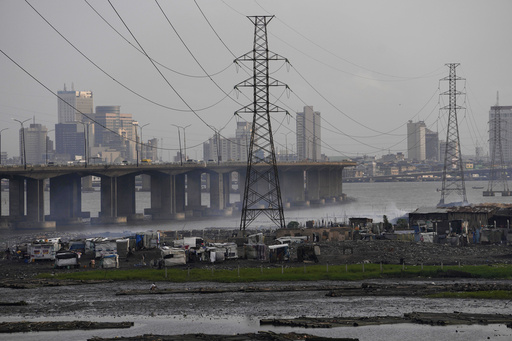
ABUJA, Nigeria — On Thursday, major Nigerian cities, including Abuja, Lagos, and Kano, experienced widespread blackouts due to a collapse of the country’s electricity grid. This incident marks the tenth occurrence of such outages within the year.
The Transmission Company of Nigeria attributed the blackouts to a “partial disturbance of the system,” though no further details were provided in their announcement.
Electricity failures are a recurring issue in Nigeria, a nation facing significant challenges in its power sector due to insufficient investment. The national grid has faced ten failures this year alone, beginning on February 4 and most recently occurring earlier this week.
Nigeria is Africa’s most populous nation, with the capacity to generate 13,000 megawatts of electricity, yet it can only transmit approximately 4,000 megawatts because of inadequate infrastructure. This limitation has been highlighted by the transmission company in previous reports.
To meet the energy needs of over 200 million people, Nigeria relies heavily on gasoline-powered generators, which provide around 40,000 megawatts to households and businesses, as stated by Adebayo Adelabu, the country’s minister of power.
In addition to infrastructure challenges, the nation has faced issues related to armed groups who have targeted power installations. For instance, last month, the northern region of Nigeria experienced a blackout lasting over seven days, after insurgents damaged vital transmission lines, according to information from the Transmission Company of Nigeria.
In response to these ongoing challenges, Nigeria has introduced a new law that permits individual states to produce and transmit electricity, aiming to alleviate pressure on the aging national grid and to attract investment into the power sector.
